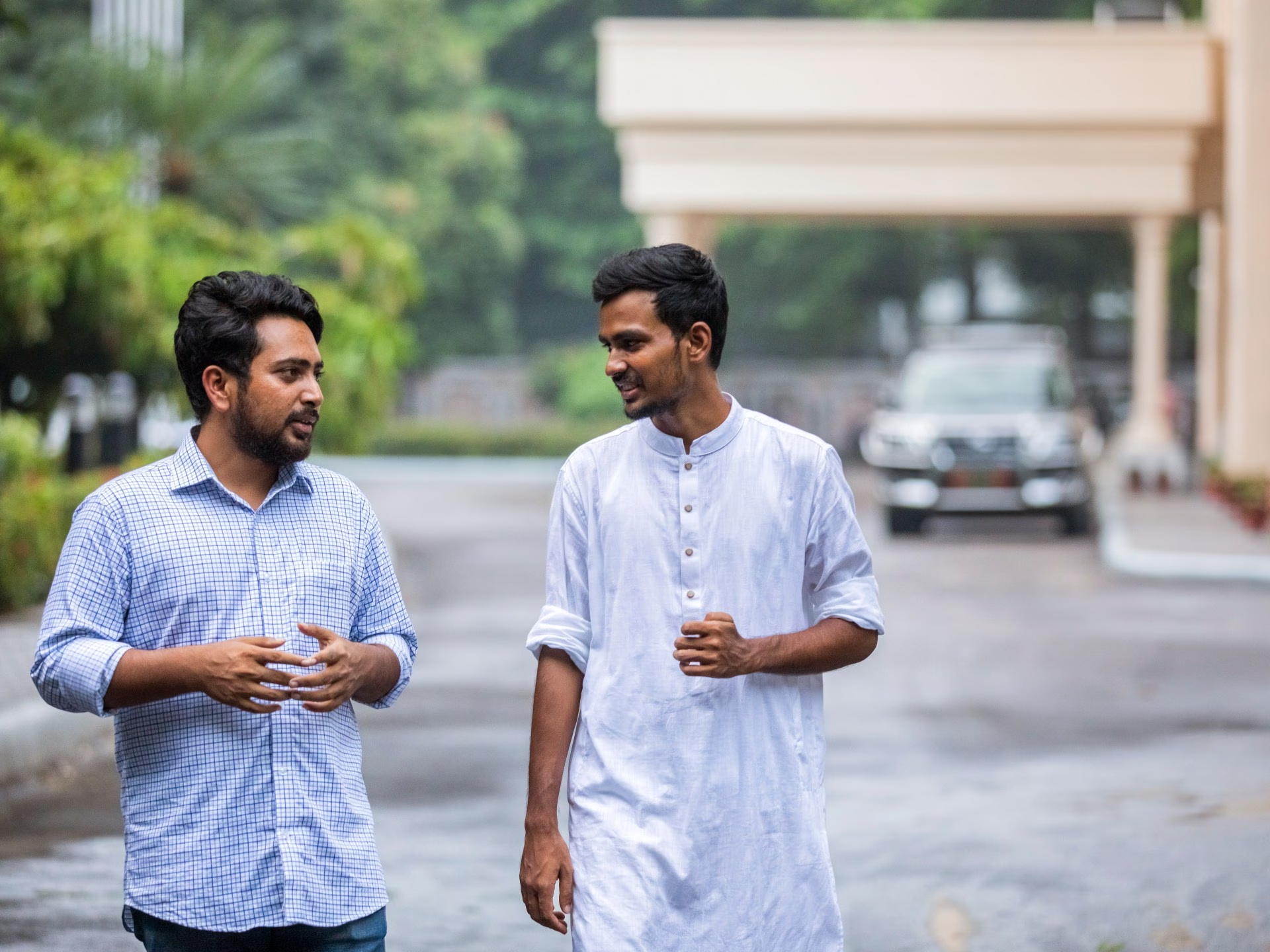Leaders of the newly formed National Citizens Party (NCP) announced at a rally on Manik Mia Avenue, near Parliament in the capital, their commitment to promoting national unity, transparency, and good governance, combating corruption, and crafting an independent foreign policy aimed at establishing a “second republic.”
Lima Akter, whose brother Ismail Hossain Rabby was killed by security forces during the July protests against Hasina, declared that Nahid Islam, a 26-year-old prominent figure from the uprising and the former acting head of Bangladesh’s Ministry of Information and Broadcasting, will lead the party as its convenor.
Islam recently stepped down from the interim government, led by Nobel Prize laureate Muhammad Yunus, to assume the leadership of the NCP, which will initially have a central committee of around 150 members.
Yunus has indicated that general elections are expected to be held by December or early 2026.
Shafiqul Islam, a nursing student present at the launch event, emphasized the desire for freedom of expression without political violence in educational institutions, and called for an end to corruption, expressing hope in the new party.
Separately, former leaders of Students Against Discrimination (SAD), the student movement that led to the fall of Hasina’s Awami League government, have launched a new student organization, Ganatantrik Chhatra Sangsad (DSC), emphasizing the continuation of the July movement’s spirit among students without aligning with any political party.
Political analysts view the NCP as a force aiming to transform Bangladesh’s political landscape, historically dominated by two family-driven dynastic groups led by Sheikh Hasina and the BNP’s Khaleda Zia. Hasina’s time in office was noted for economic progress but also for allegations of corruption and authoritarian practices.
The BMP’s hopeful for the elections face challenges from the two major political entities, as well as from Islamist groups like the Bangladesh Jamaat-e-Islami, and left-wing party like Communist Party of Bangladesh.
Speakers from the NCP have pointed out that Bangladesh’s politics has been historically marred by divisions over secularism, Islamic law, and conflicting national loyalties, which they aim to move past, with a focus on uniting for equal rights and opportunities for all.
The party claims to have gathered input from approximately 200,000 individuals on their vision and key issues, noting a strong desire for corruption eradication, education reform, and universal healthcare access.
The NCP is expected to distance itself from ideological divisions and promote good governance and civic benefits. Nahid Islam affirmed that the party will steer clear of pro-India or pro-Pakistan politics, focusing on Bangladesh’s interests first.
The new party draws inspiration from movements like India’s Aam Aadmi Party, Pakistan’s Pakistan Tehreek-e-Insaf, and Turkiye’s Justice and Development Party, but insists that it will carve a unique path suited to Bangladesh’s context.
Analysts caution that despite having a window of opportunity, the NCP will face challenges in presenting a unified front, differentiating itself from existing parties, and avoiding ideological conflicts within its diverse membership.
Reactions to the NCP’s emergence from existing political parties have been mixed, with some expressing skepticism and others welcoming the development with reservations.
The new party now has a limited time frame to capitalize on the post-uprising desire for change, as per analyst Rezaul Karim Rony.







